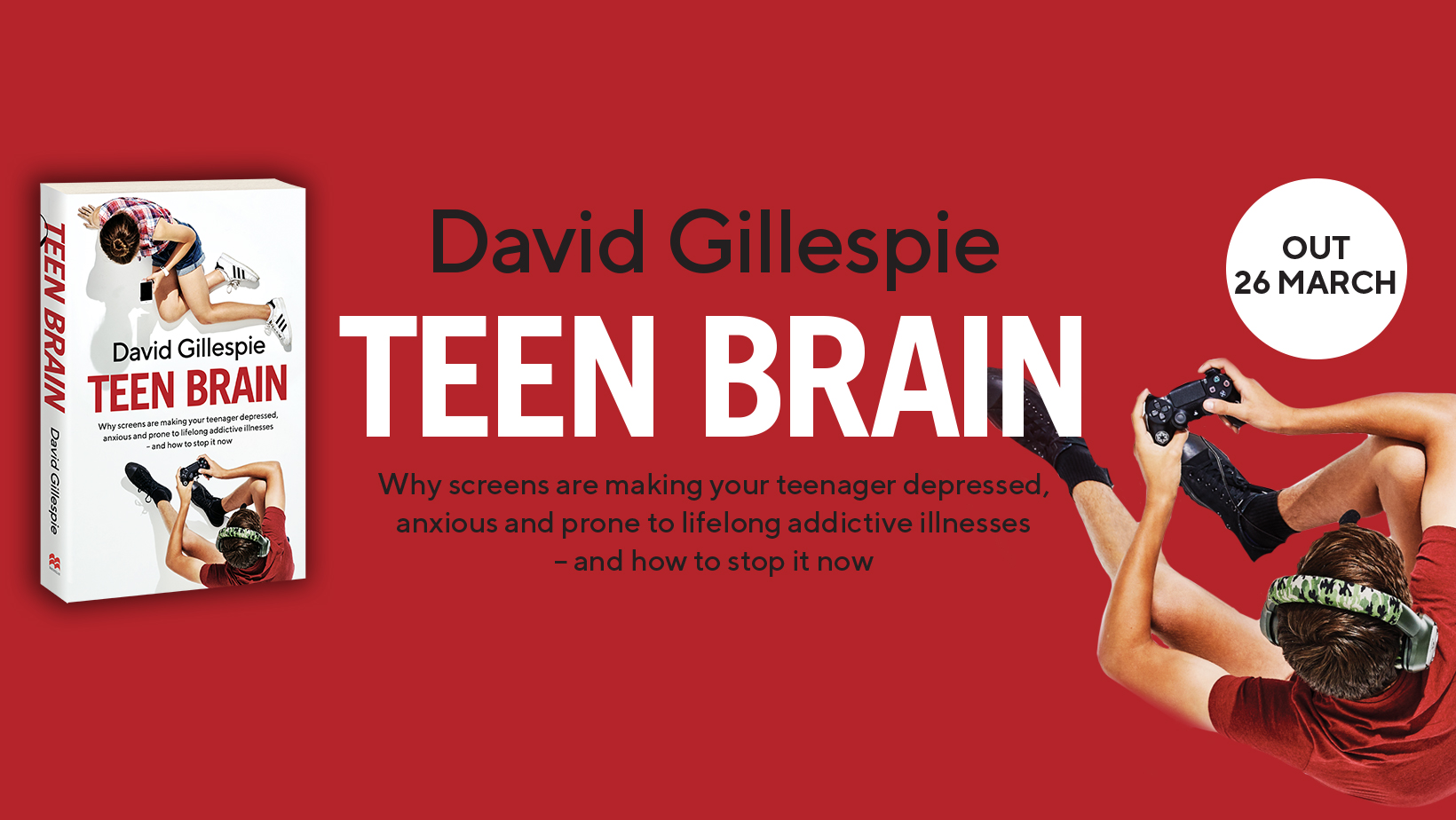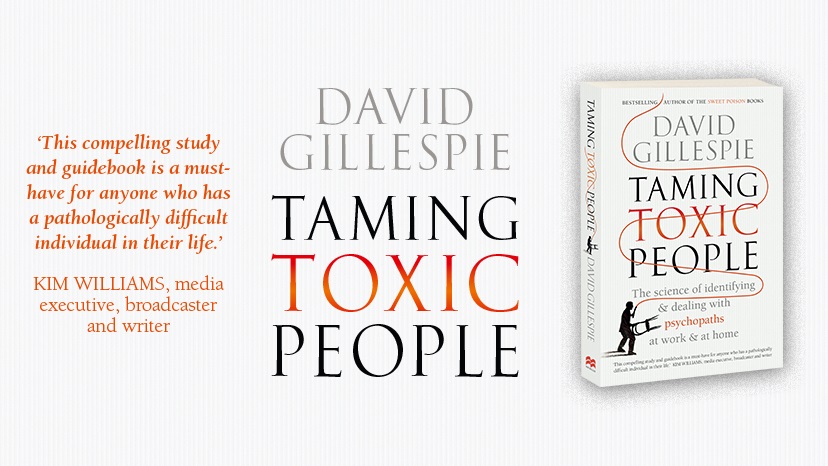
I started researching this book because two mothers of teenagers told me to. My wife, Lizzie, said she was barely able to get through a conversation with another mother of teens without hearing about a child in counselling or on medication for anxiety and depression. Then my publisher, Ingrid, said exactly the same thing. Both of them felt something wasn’t right. This wasn’t how they grew up. They felt something was going on in the world of teenagers that was being hidden by the happy selfies on Facebook and Instagram, and they both wanted me to start digging to see if their hunches were right.
Before I started, I really wondered why I was bothering. Surely, I thought, everything that could possibly be written about parenting teens had already been done, and done better than I could ever do. Sure, there seemed to be more fuss in the media about teens overusing their phones, but I put that down to the perennial intergenerational problem of ‘teens these days’. Yes, it was a minute-by-minute fight in our house to keep the kids away from their school mandated iPads. And yes, the presence of those devices in the house had introduced a whole new level of sneaky behaviour and teen angst. But I put all that down to normal growing pains.
Then I started reading the research on the significant changes in reward pathways in adolescence. I wondered why I’d seen nothing much in the press about that well established biological reality. And I wondered why I saw even less about why that might be a problem in an age when billions are being spent by tech companies to encourage teenagers to become addicted to their products.
I knew software is engineered to addict. When it comes to non-business-related software, addictive products sell. Non-addictive products die a fast death. This is especially the case when every product in the category is ‘free’. I’d worked long enough in the industry to know how product management and marketing work. But I didn’t know that teens are particularly susceptible to addiction.
I knew it was always a struggle to prise a screen from our teenagers’ hands, but I tended to have a vaguely dismissive, ‘What harm can it really do?’ approach. And yes, I felt devices in schools were a significant distraction likely to impair performance, but I had no sense of how uniquely destructive to teen wellbeing they could be.
In short, I was happy to drift, uncomfortably, through allowing teen access to devices and accept, uneasily, the assurances that while they might be distracting, it was for the best or at least would do no permanent harm. That was until the union-of-the-mothers-of-teens told me to have a good hard look at it. In a nutshell, here’s what I found:
- The biology of puberty makes the teen brain uniquely fragile. It makes teens susceptible to addictions that can last for life and usher in mental illness.
- Parenting is much more permissive and parents need to harden up to save their kids.
- Unfettered access to screens is driving an epidemic of addiction, depression and anxiety, the likes of which we have never witnessed before.
What I found was frankly terrifying. In less than a decade we’ve totally changed the future of the human race, and we’ve done it without so much as a backward glance. Think that’s an overreach? Bear with me while I explain. …

















Hi David,
I have just listened to your Conversations interview and want to thank you for raising this disturbing issue that is close to my heart. I’m a mother of 29 year old twin girls, a teacher and a therapist and you unfortunately confirmed my fears and have put a voice to all that I have been concerned about for a long time. I feel like I saw this coming a long time ago. I work at a Steiner school which at least is keeping technology out of the classroom still, but generally schools so need to wake up on this issue.
I’ve also just had a children’s book printed. The illustrations are colourful and rich making it engaging for children, but it real purpose is to serve as a reminder for parents. It contains a strong message about the importance of human connection and what children need in order to thrive. I’d love you to be aware of its existence. I’m still very much on a learning curve as to how to get it out there – so any words of advice would be greatly appreciated. To get an idea of the book go to: artoftransition.com.au/shop
I just hope that your wisdom can get through to the powers to be and to all parents. I honestly fret for the future of humanity – and it’s not just the climate change issue.
With deep gratitude,
Deborah
Dear David, at first I thought ‘Teen Brain’ was not relevant to myself as my children are all now adults. However my youngest son was addicted to computer games, when they were not portable, but has now largely outgrown it. Recently I spent time with a grandchild who is addicted to an iPad – he has just turned 6! Also my eldest son is a Secondary Teacher & I will strongly suggest he read your book. I am now going to buy a copy so I can be more informed as a mother & grandmother. Regards Jayne
Hi David,
I heard your interview and have begun reading your book – compelling stuff. I was interested to read that your eldest had bought his own device, we have a similar scenario in our house. How did you navigate this reduction in screentime with somethingvwhich your son may have felt he was entitled to use? I’m guessing the ‘sense of entitlement ‘ is the issue rather than the actual screen, but curious how you managed it.
Also are you aware of anyone who works supporting families who want to help their kids to unplug?
Thanks
Thank you David
I hope every Australian parent reads this book .
I cannot tell you how much relentless pressure I have received over the years to relax my rules on screen time or negotiate on my ban of gaming for my two boys (now 16/19) . Not by the boys themselves .. or their friends .. but other mothers !!!
I have two very grounded , empathetic and healthy sons who are very engaged in the world and I am constantly being told how exceptional they are .
But I know they are just what teenagers are without addictions .
Thank you again so grateful for your work .
Carmel
Hi David,
Thank you so much for writing “Teen Brain”. My boys are currently 5 and 8 but I know the teen years will be upon us before we know it. Having read your book, I feel I have a much better understanding of what to expect and what my boys will need from me as a parent when they are teens. It has also got me thinking about positive attitudes and habits I can establish now which will support our family as we navigate their adolescence together. Your book is an important contribution to the wellbeing of teens and families – thanks again.
Julie
Hi David,
As an integrative nutriton health coach who specialises eating disorder recovery on aplant based diet, I am so concerned about your section on veganism (page 124) in your teen brain book as it is filled with so much misinformation is dangerous to your readers.
You say that on a plant based diet the bio availability of calcium is almost non existent in plant based sources, This is simply not true. we need between 500g- 800g of calcium daily.
one serving of sesame seeds contains 300mg of calcium, one cup of collard greens contains 250mg of calcium and one serving of tofu also has 250g of calcium. You then go to say that you need to supplement calcium. This is such dangerous advice as calcium supplements have been scientifically proven to cause cardiovascular problems : https://www.ncbi.nlm.nih.gov/pmc/articles/PMC3970298/
You have clearly not done your research on this topic as iron and zinc are also HIGHLY available in plant based sources, actually when mixing vitamin c with your plant based source of iron, this increases the availability of the iron x3 which far surpasses heam iron found in animal protein.
The fact that you are telling parents to disregard their teenagers wants to move towards a plant based diet is the most outrages claim you have made !!!
A plant based diet is the only diet proven to reverse heart disease and cancer the two largest killers in our worlds today !
My younger sister who is 15 years of age was reading your book and i am horrified at the miss information about plant based living. I recommend you read “The China Study” the most comprehensive study ever done on nutrition which isnt funded by the meat an dairy industry.
Alexia,
I’m not sure what you count as a ‘serving of sesame seeds’ but 1/4 cup (38g) contains 23mg of calcium of which 20.8% is absorb-able (bio available) – meaning we would take in 4.8mg of usable calcium from that serving (the equivalent of drinking 21(!) 250ml cups of milk. 100 Grams of cooked Broccoli (a collard green) contains 40 mg of Calcium of which 60% is bio-available (24 mg) (4 cups of Milk). These numbers are from the searchable food nutrient database maintained by Health Canada
The article you link to does not ‘scientifically prove’ supplements ’cause cardiovascular problems’. It is a discussion of the efficacy of supplements in osteoporosis treatment and concludes they don’t help much.
The China Study is (and there is no more polite way to say this) nonsense. For a more detailed analysis of why I recommend Denise Minger’s thorough demolition of the study and the book about it.
Hi David
How many families have you worked with to implement your advice? How did working with them lead you to refine your advice? What is your approach if “boundaries and consequences” don’t work? What is your view of the importance of connection and collaboration in parenting teens?